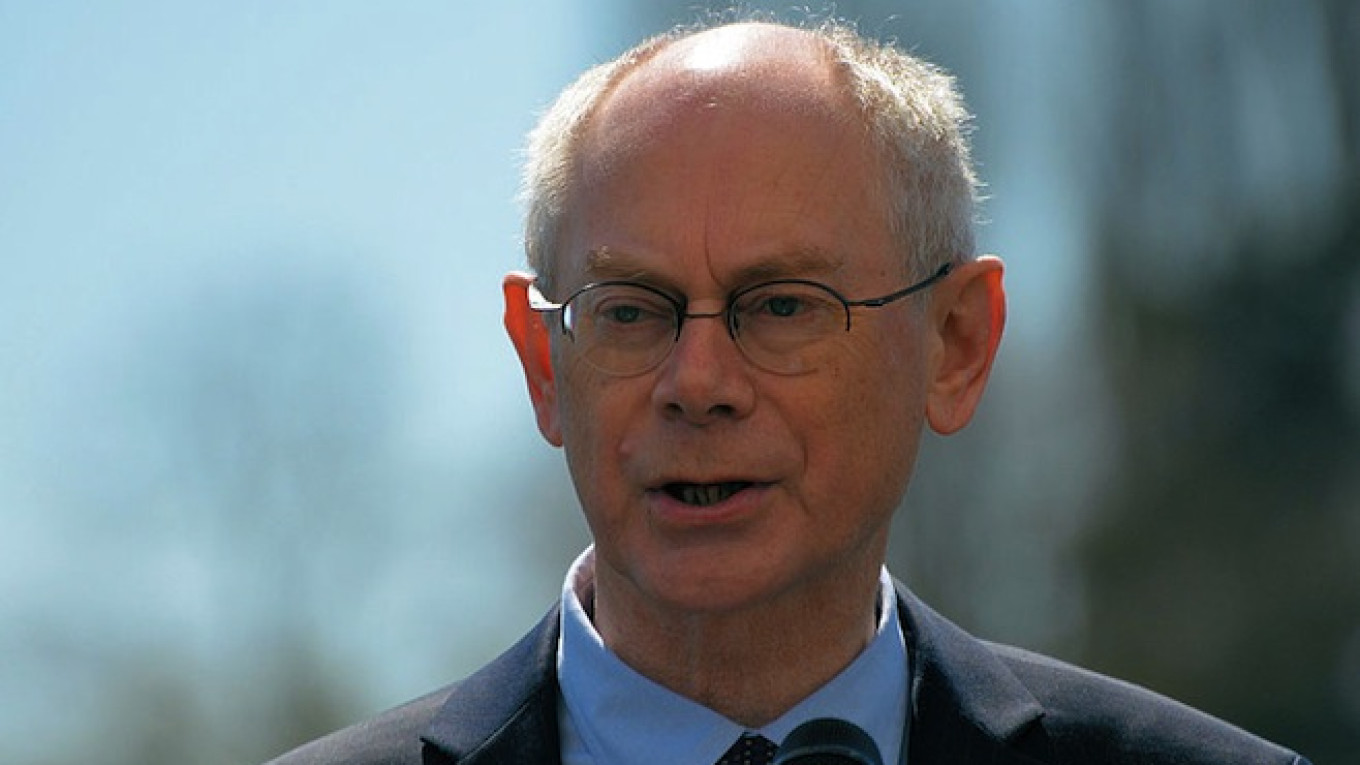The European Union has imposed sanctions against 12 more Russian officials in an attempt to push Moscow toward dialogue over its interference in Ukraine, EU leaders said after a meeting in Brussels on Thursday.
European Council President Herman Van Rompuy said that the individuals on the list represent top officials in the Russian government, Interfax reported early on Friday. This brings the total number of Russians and Crimeans targeted by the EU in the response to the crisis to 33.
The sanctions include travel bans and asset freezes, an official statement on the European Council's website said. The names of those affected were expected be made public later on Friday.
"Russia must understand that it cannot continue, that it must take the path of dialogue," French President Francois Hollande said following the meeting, German newspaper Deutsche Welle reported.
The EU was also planning to assess the potential impact of broad economic sanctions against Moscow, ahead of a possible implementation of the "third phase" of financial sanctions.
Van Rompuy said the goal of economic sanctions would not be to punish Russia for the annexation but to act as a deterrent to further intervention in Ukraine. Any steps by Russia to destabilize the country would have "far-reaching consequences," he said, BBC reported.
U.S. President Barack Obama on Thursday also ordered economic sanctions against about two dozen allies of Russian President Vladimir Putin.
Moscow retaliated with its own blacklist of U.S. figures, which includes U.S. House Speaker John Boehner and former presidential candidate Senator John McCain, who called Russia "a gas station masquerading as a country," urging the White House this week to target Russia's oil exports.
A Message from The Moscow Times:
Dear readers,
We are facing unprecedented challenges. Russia's Prosecutor General's Office has designated The Moscow Times as an "undesirable" organization, criminalizing our work and putting our staff at risk of prosecution. This follows our earlier unjust labeling as a "foreign agent."
These actions are direct attempts to silence independent journalism in Russia. The authorities claim our work "discredits the decisions of the Russian leadership." We see things differently: we strive to provide accurate, unbiased reporting on Russia.
We, the journalists of The Moscow Times, refuse to be silenced. But to continue our work, we need your help.
Your support, no matter how small, makes a world of difference. If you can, please support us monthly starting from just $2. It's quick to set up, and every contribution makes a significant impact.
By supporting The Moscow Times, you're defending open, independent journalism in the face of repression. Thank you for standing with us.
Remind me later.


